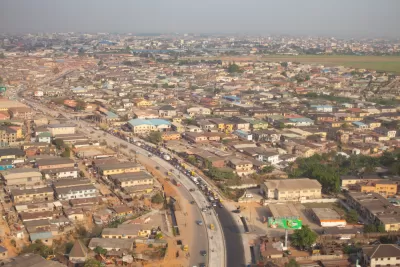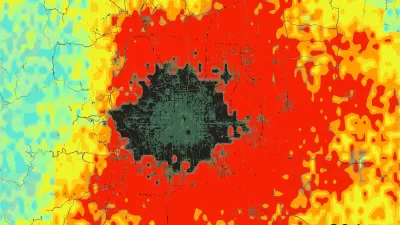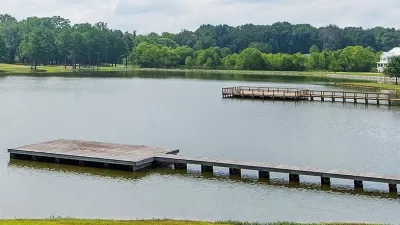By 2030, cities will have tripled in size since 2000. Unmanaged, incessant growth is threatening the planet, according to a new report from the World Resources Institute.

The World Resources Institute released its “Upward and Outward Growth: Managing Urban Expansion for More Equitable Cities in the Global South” report last week, complicating the narrative of urbanization as a vertical process.
"Metropolises aren’t simply building up, they’re expanding out, and doing both at unprecedented rates that have serious consequences for the economy and the environment," writes Patrick Sisson to explain his take on the new report.
To complete the study, "[r]esearchers examined growth patterns for nearly 500 urban areas, using satellite imagery and radar data to measure growth vertically and horizontally," according to Sisson. "The results suggest land-use and density may be one of the defining issues of the next few decades."
The report puts the onus on cities in the Global South to plan a more sustainable future—although efforts of cities like London and Paris to cut emissions is also given credit for making a difference.
FULL STORY: As cities grow upward and outward, sprawl and land use become key global issues

Maui's Vacation Rental Debate Turns Ugly
Verbal attacks, misinformation campaigns and fistfights plague a high-stakes debate to convert thousands of vacation rentals into long-term housing.

Planetizen Federal Action Tracker
A weekly monitor of how Trump’s orders and actions are impacting planners and planning in America.

San Francisco Suspends Traffic Calming Amidst Record Deaths
Citing “a challenging fiscal landscape,” the city will cease the program on the heels of 42 traffic deaths, including 24 pedestrians.

Defunct Pittsburgh Power Plant to Become Residential Tower
A decommissioned steam heat plant will be redeveloped into almost 100 affordable housing units.

Trump Prompts Restructuring of Transportation Research Board in “Unprecedented Overreach”
The TRB has eliminated more than half of its committees including those focused on climate, equity, and cities.

Amtrak Rolls Out New Orleans to Alabama “Mardi Gras” Train
The new service will operate morning and evening departures between Mobile and New Orleans.
Urban Design for Planners 1: Software Tools
This six-course series explores essential urban design concepts using open source software and equips planners with the tools they need to participate fully in the urban design process.
Planning for Universal Design
Learn the tools for implementing Universal Design in planning regulations.
Heyer Gruel & Associates PA
JM Goldson LLC
Custer County Colorado
City of Camden Redevelopment Agency
City of Astoria
Transportation Research & Education Center (TREC) at Portland State University
Jefferson Parish Government
Camden Redevelopment Agency
City of Claremont





























